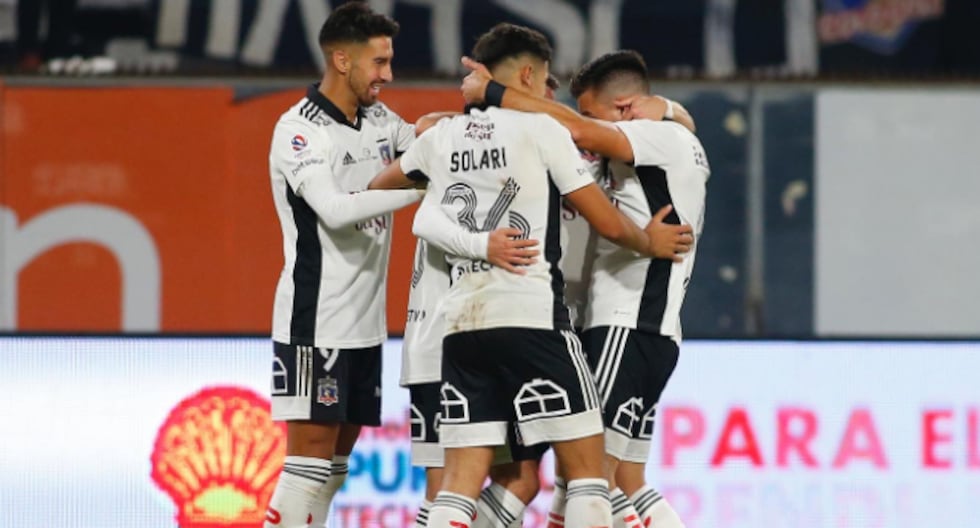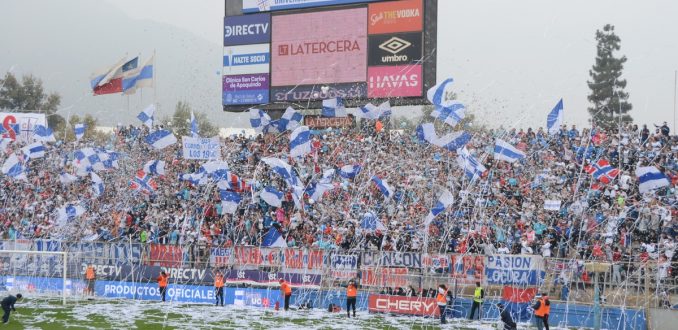Vercel Challenges LaLiga's Internet Censorship Measures For Piracy

Table of Contents
LaLiga's Anti-Piracy Strategy and its Controversies
LaLiga, the governing body of Spain's professional football leagues, has implemented a multifaceted anti-piracy strategy characterized by aggressive legal action and extensive website blocking. Their efforts aim to protect the copyright of their broadcast rights and combat the illegal streaming of matches, which causes significant financial losses. However, their methods have attracted significant criticism.
Specific methods employed by LaLiga include:
- Court orders for domain name seizures: LaLiga actively pursues court orders to seize domain names associated with websites offering illegal streams.
- Collaboration with ISPs to block access to pirate sites: They work closely with internet service providers (ISPs) to block access to websites identified as hosting pirated content. This involves issuing takedown notices and requesting ISPs to filter access.
- Use of automated takedown notices: LaLiga utilizes automated systems to identify and issue takedown notices to platforms hosting infringing content.
However, LaLiga's strategy faces criticism for potential overreach. Critics argue that the blanket blocking of websites, often without due process, may inadvertently impact legitimate websites or those offering fair use content. Concerns regarding freedom of speech and access to information are also prominent. The scale of the blocking and the potential for collateral damage raise serious questions about the proportionality of the response to piracy.
Vercel's Role and its Stance Against Censorship
Vercel, a popular platform-as-a-service (PaaS) provider, hosts numerous websites, some of which may have been targeted by LaLiga's censorship efforts. Vercel's position is that they are a neutral platform providing services to a diverse range of users. LaLiga's actions, they argue, directly impact their users and operations, potentially hindering free speech and open access to the internet.
Vercel's core arguments against LaLiga's approach include:
- Proportionality of censorship measures: They question whether the sweeping nature of LaLiga's actions is proportionate to the problem of online piracy.
- Due process concerns for affected website owners: Vercel advocates for fair and transparent processes for website owners accused of copyright infringement.
- Potential chilling effect on free expression: The aggressive censorship tactics, Vercel argues, create a chilling effect, discouraging legitimate online activities and innovation.
While Vercel hasn’t directly filed a lawsuit against LaLiga, their public stance and actions demonstrate a clear opposition to the censorship measures. They represent a significant voice in the debate, highlighting the challenges faced by platform providers caught between copyright holders and users' rights.
The Legal Implications and International Precedents
The Vercel-LaLiga conflict highlights a complex legal landscape encompassing online censorship, copyright infringement, and the role of intermediaries. The legal frameworks governing online content moderation vary across jurisdictions, creating jurisdictional challenges for takedown requests and enforcement.
Key legal aspects include:
- Jurisdictional challenges in online takedown requests: Determining which jurisdiction has the authority to order takedowns of content hosted on servers located in different countries is a significant hurdle.
- Balancing intellectual property rights with freedom of expression: Courts worldwide grapple with balancing the protection of intellectual property rights with fundamental rights to freedom of speech and access to information.
- The role of intermediaries (like Vercel) in online content moderation: The legal responsibilities of platforms like Vercel in policing user-generated content and responding to takedown notices remain a topic of ongoing debate and litigation.
This case could set important precedents, impacting future efforts to combat online piracy and regulate online content. International case laws, including those dealing with intermediary liability and the right to be forgotten, will be relevant in any potential legal challenges.
The Wider Impact on Online Streaming and the Future of Digital Content
The Vercel-LaLiga case holds significant implications for the online streaming industry and the future of digital content distribution. The outcome will influence how content creators and distributors approach copyright protection and the fight against piracy. It may encourage more nuanced approaches that avoid broad censorship while still protecting intellectual property.
Potential outcomes include:
- Increased scrutiny of internet censorship tactics: This case is likely to increase scrutiny of internet censorship methods employed by rights holders.
- Development of more effective anti-piracy technologies: The conflict may spur the development of more sophisticated anti-piracy technologies that target infringing activities without resorting to sweeping censorship.
- Changes in the balance between content creators and distributors: The case may lead to shifts in the power dynamics between content creators, distributors, and online platforms. It could potentially lead to fairer and more transparent content moderation policies.
Alternative solutions to piracy, such as improved digital rights management (DRM) technologies, robust content licensing agreements, and increased accessibility of legitimate streaming services, need to be explored and implemented.
Conclusion
The Vercel challenge to LaLiga’s internet censorship underscores a critical debate concerning online freedom and the fight against piracy. Both sides present valid arguments: LaLiga seeks to protect its copyright and revenue streams, while Vercel emphasizes the importance of free expression and due process. The potential legal ramifications are far-reaching, potentially reshaping how online censorship and copyright infringement are addressed globally. This case necessitates a thorough examination of alternative strategies that effectively combat piracy without compromising fundamental online freedoms. Stay informed about the developments in this crucial legal battle and consider sharing your thoughts on achieving a balance between copyright protection and user access to information. The effective management of online piracy requires a nuanced approach that respects both intellectual property rights and the principles of free speech and open access.

Featured Posts
-
 Padres Game Day Rain Delay Pushes Back First Pitch Tatis And Campusano Updates
May 16, 2025
Padres Game Day Rain Delay Pushes Back First Pitch Tatis And Campusano Updates
May 16, 2025 -
 Everton Vina Y Coquimbo Unido Resumen Del Partido 0 0
May 16, 2025
Everton Vina Y Coquimbo Unido Resumen Del Partido 0 0
May 16, 2025 -
 Ufc Veteran Analyzes The Paddy Pimblett Vs Michael Chandler Fight
May 16, 2025
Ufc Veteran Analyzes The Paddy Pimblett Vs Michael Chandler Fight
May 16, 2025 -
 0 0 Everton Vina Y Coquimbo Unido Empatan Sin Goles
May 16, 2025
0 0 Everton Vina Y Coquimbo Unido Empatan Sin Goles
May 16, 2025 -
 Paddy Pimblett Predicts Ufc 314 Victory Eyes Championship Shot
May 16, 2025
Paddy Pimblett Predicts Ufc 314 Victory Eyes Championship Shot
May 16, 2025
